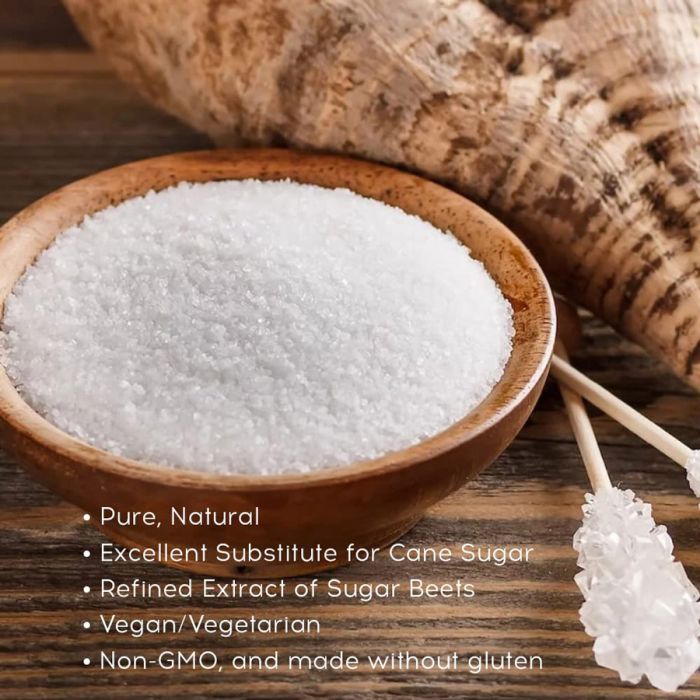A key factor in the beet sugar vs cane sugar debate is how each variety impacts baking.
A key factor in the beet sugar vs cane sugar debate is how each variety impacts baking.
Blog Article
Discover the Uses and Benefits of Beet Sugar Vs Cane Sugar in Your Daily Diet Plan
Discovering the unique high qualities of beet and cane sugar reveals more than simply their sweetening capabilities; it highlights their special impacts on wellness and culinary arts. Beet sugar, understood for its subtle taste, is commonly preferred in delicate desserts, whereas cane sugar, with its tip of molasses, adds splendor to robust meals. Each kind holds its own dietary profile and glycemic implications, welcoming a much deeper understanding of their roles in a balanced diet plan and sustainable usage methods.
Beginning and Production Procedures of Beet and Cane Sugar

The unique climates and soil kinds needed for growing sugar beets and sugarcane contribute to distinctions in their farming techniques and geographic distribution, affecting the business economics and sustainability of their manufacturing. beet sugar vs cane sugar.
Nutritional Contrast In Between Beet Sugar and Cane Sugar
Regardless of originating from different plants, beet sugar and cane sugar are nutritionally very comparable, both mostly consisting of sucrose. Each offers about 4 calories per gram, converting to approximately 16 calories per teaspoon. Structurally, both sugars are composed of roughly 99.95% sucrose, with very little amounts of various other materials like dampness and trace minerals, which do not substantially change their nutritional profiles.

Eventually, when choosing between beet sugar and cane sugar based upon dietary material alone, both offer identical benefits and drawbacks as they are essentially types of the same molecule-- sucrose, giving quick energy without various other nutrients.
Effect On Health And Wellness: Glycemic Index and Caloric Content
Discovering further into the effects of beet sugar and cane sugar on health, it is essential to consider their glycemic index and calorie content. The glycemic index (GI) of both beet and cane sugar is around 65, categorizing them as high-GI foods, which can create fast spikes in blood glucose levels.
Each kind of sugar contains around 4 calories per gram, making their caloric material equivalent. For those keeping track of caloric consumption, specifically when taking dig this care of weight or metabolic wellness conditions, comprehending this equivalence is important (beet sugar vs cane sugar). Extreme consumption of any high-calorie, high-GI food can contribute to wellness concerns such as excessive weight, heart condition, and insulin resistance.
Environmental and Economic Factors To Consider of Sugar Production
Beyond health and wellness impacts, the production of beet and cane sugar also raises considerable environmental and economic issues. Sugar beet growing often tends to call for cooler environments and has a reduced geographical impact contrasted to sugar cane, which flourishes in tropical regions. Both plants are intensive in terms of water use and land profession, possibly leading to logging and water deficiency. Financially, the worldwide sugar market is extremely volatile, influenced by changes in worldwide trade plans and aids. Numerous countries incentivize sugar manufacturing via economic assistance, skewing market value and impacting small-scale farmers adversely.
In addition, using pesticides and plant foods in both beet and cane sugar farming can result in soil deterioration and contamination, additional influencing biodiversity and neighborhood water bodies (beet sugar vs cane sugar). The selection in between growing sugar beet or cane often rests on local ecological problems and financial variables, making the sustainability of sugar manufacturing an intricate concern
Culinary Applications and Taste Distinctions
While the ecological and economic aspects of sugar manufacturing are without a doubt substantial, the option between beet and cane sugar also influences cooking applications and taste accounts. Beet sugar, acquired from the sugar beet plant, is recognized for its extremely neutral preference.
Walking stick sugar, removed from sugarcane, usually maintains molasses traces, which present a distinctive richness and depth. This slight molasses taste improves the intricacy of baked items, sauces, and marinates. It is especially preferred in items where a sugar undertone is desired, such as in brownies or gingerbread. The mild variation in moisture web content in between beet go to this web-site and cane sugar can impact the texture and uniformity of meals, making cane sugar a preferred selection for details recipes that profit from its one-of-a-kind properties.

Verdict
In final thought, both beet and cane sugar visit here have unique beginnings and manufacturing processes, using comparable nutritional accounts with minor distinctions in sodium material and flavor. While their effect on wellness, specifically pertaining to glycemic index and calories, is equivalent, the option between them frequently comes down to ecological, financial variables, and certain culinary requirements. Comprehending these aspects can guide consumers in making educated choices that line up with their health and wellness objectives and flavor choices.
Report this page